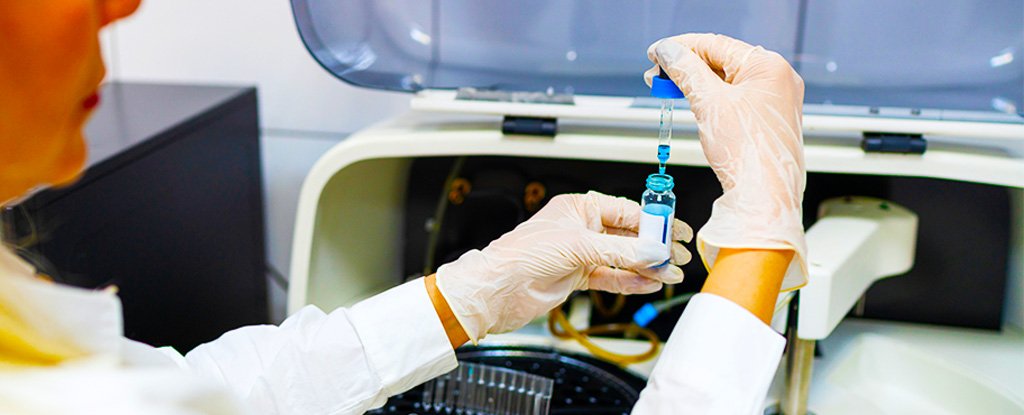Starkly Unwelcome News from South Korea
"We are aware of these reports of individuals who have tested negative for COVID-19 using PCR (polymerase chain reaction) testing and then after some days testing positive again."
"We are closely liaising with our clinical experts and working hard to get more information on those individual cases. It is important to make sure that when samples are collected for testing on suspected patients, procedures are followed properly,"{
"As COVID-19 is a new disease, we need more epidemiological data to draw any conclusions."
World Health Organization spokesperson
"[The virus may have] reactivated [in the patients, as opposed to the patients being re-infected again]."
"While we are putting more weight on reactivation as the possible cause, we are conducting a comprehensive study on this."
"There have been many cases when a patient during treatment will test negative one day and positive another."
Jeong Eun-kyeong, director, Korea Centers for Disease Control and Prevention
 | |
| Science Alert |
"There are different interpretations and many variables."How this discovery will impact the theory of herd immunity -- that when enough individuals in any given population have been exposed to the COVID-19 virus to form a majority, a herd immunity effect will take place, protecting those who were not exposed, bringing the community up over the hump of ongoing infections -- is yet to be known as is so much about the threat properties of the novel coronavirus, and its after-effects.
"The government needs to come up with responses for each of them."
Jung Ki-suck, professor of pulmonary medicine, Hallym University
"We say that a patient has fully recovered when he or she tests negative twice within 24 hours."
"But the fact that some of them tested positive again in a short period means that the virus remains longer than we thought."
Son Young-rae, spokesman, South Korean Health and Welfare Ministry
And the hope that by extracting from once-infected patients the antibodies produced by their immune system that helped them control and survive the novel coronavirus attack, to be used in creating a protective serum for a new vaccine to inoculate a population may now be called into question. Unless it can be proven that these patients were not in fact, reinfected, but that the still-existing virus in their bodies simply flared up on the way to disappearing.
 |
| South Korean army soldiers spray disinfectant as a precaution against the novel coronavirus at a traditional market in Daegu, South Korea on Wednesday. (Kim Do-hoon/Yonhap/The Associated Press) |
Research will have to be conducted to determine whether the re-infected patients' viral condition also is infectious, or whether the infection properties of the virus have been demolished.There are so many complex variables in this new disease that is proving to be data-elusive while sweeping its deathly menace through the globe, that scientists are probing desperately in all directions in an effort to find its weak spots whereby it exploits the vulnerability of human beings to enable its replication and spread.
It will take, evidently a week at least until preliminary findings can be depended upon. The theory that at fault were false test results is another straw being grasped at. The possibility that the remnants of the virus still circulating in patients' systems, pose no risk to themselves or those around them, would be a best-case scenario.
Hailed as a success story following its clockwork implementation of a mass testing regime to halt the spread of the virus, a lower fatality rate ensued in South Korea, defying the global average. In the early stages of the outbreak outside China, South Korea was held to have suffered one of the worst outbreaks of the coronavirus spread, yet speedily brought it under control in the space of two months.
A total of 27 new cases was reported last Friday, representing the lowest figure since the peak of daily cases in late February, while the death toll rose to 211 by seven additional fatalities.
More than half of all South Korea's total infections have taken place in Daegu, and it had reported no new cases at all, the first time since late February. Fears of a fresh outbreak have been sparked however, by these new reports of patients felt to have recovered, testing positive once again when the 91 recovered coronavirus patients tested positive.
 |
| Medical staff wearing protective suits take samples from a person with suspected symptoms of the new coronavirus at a drive-thru test facility in Goyang, South Korea, last month. Officials on Friday reported that 91 patients in the country thought to have recovered from the new coronavirus had tested positive again. | AP |
Labels: Novel Coronavirus, Re-Infection, South Korea
0 Comments:
Post a Comment
<< Home